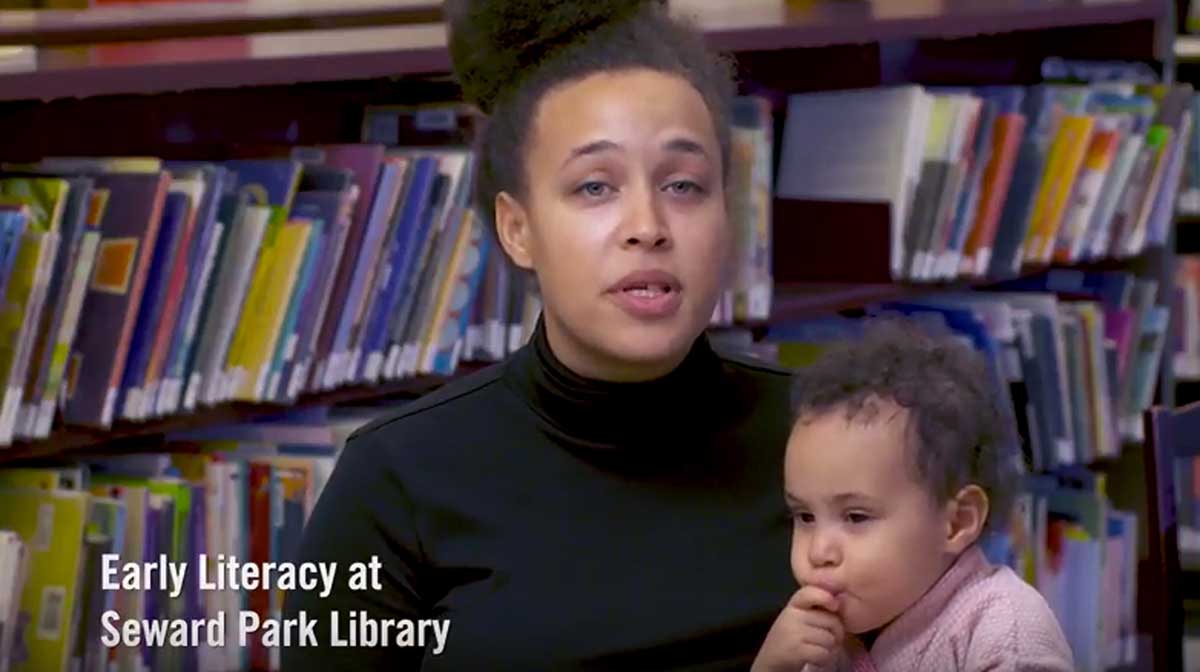By Naeisha Rose
The presidents of the Queens, Brooklyn and New York library systems held a joint rally last week at City Hall to draw attention to the unchanged funding for their organizations in the city’s proposed budget for fiscal year 2019.
“We have $156 million in our overall budget,” said Queens Library CEO Dennis Walcott, about funding for the borough. “The mayor and the City Council gave us additional moneys in fiscal year 2015, then baselined it, so we have not had an increase, yet our expenses continue to go up.”
When combined, the three library systems have the second largest volumes (27,120,278) of library materials across the country, only behind the Library of Congress (34,528,818) in Washington, D.C., according to the American Library Association.
But to meet operating costs and maintain the buildings, the presidents are seeking an additional $76 million in funding to continue providing six-day service, sustaining programs, and operating for extended hours.
There were 11.2 million customers who went to the 63 branches in the Queens Library System in 2017, according to Dennis Walcott, the CEO.
“We are asking for $16 million for all three systems and an additional $60 million to meet challenges of the capital budget, and making sure there are enough funds for repairs and unintended issues that may come up,” Walcott said.
Queens Library is requesting $4.8 million out of the $16 million for the three systems towards expenses, according to Elisabeth de Bourbon, the library’s spokeswoman. The three library networks would split the capital funds three ways, so each will receive $20 million for repairs and emergencies.
“There are new needs that need to be met like increased minimum wage, additional health costs and other types of expenses,” Walcott said.
The mayor’s office said it understands the importance of the libraries, but it has previously provided subsidies to libraries, which started in 2016, according to spokeswoman Freddi Goldstein.
“This administration greatly values the benefits libraries bring to communities, which is why we’ve increased their budget by 24 percent over five years,” Goldstein said. “This new request will be considered as part of the ongoing budget process.”
Mayor Bill de Blasio has provided $485 million in capital funding, which includes $300 million for the comprehensive renovation of library branches that have been identified as “most critical” and $185 million for various branch renovations, upgrades, and improvements citywide, according to his office. In 2016, $42.9 million was subsidized for the expansion of six-day library service to all branches.
Queens Library said it has 1,745 full-time and part-time employees, 443 of whom had or will have their wages increase from $11 to $13 per hour for the period covering Dec. 31, 2017 to June 30, 2018, according to de Bourbon. All wages will increase to $15 per hour from Dec. 31, 2018 to June 30, 2019.
Negotiations for the city’s budget concludes at the end of June, hence the campaign from the three libraries to increase funding before its too late.
The mayor’s office said that it has entirely funded collective bargaining increases for all city-funded employees at the libraries, and that it provided funding for the costs associated with incremental health insurance increases for workers participating in city health insurance plans.
The library expenses also include programming, which has become the bread and butter for many libraries. Queens Library has 80,000 free programs, according to the library’s website.
“We’ve seen a 27 percent increase in our program numbers and roughly 1.4 million customers participated in our library programs,” Walcott said.
Although libraries have been facing stiff competition from electronic sources when it comes to books in the last decade, they managed to increase foot traffic in their buildings through programming and becoming cultural hubs.
“We have our adult learning programs, English as a second language, youth programs, we have our K-2-K program that prepares kids for kindergarten, there’s our cyber center and there has been demand for our circulation, and we have e-books as well,” Walcott said. “We also have our video visitation program where you can connect with incarcerated family members.”
Queens Library hosts concerts, Q&A sessions with authors, movie screenings, and is the site where many city programs are launched or managed (ID NYC), and some branches moonlight as voting sites for the public.
“Sometimes I think people take us for granted and think that we will always be there and provide important services,” Walcott said, “but it really requires money for us to be there.”
Reach reporter Naeisha Rose by e-mail at nrose



































